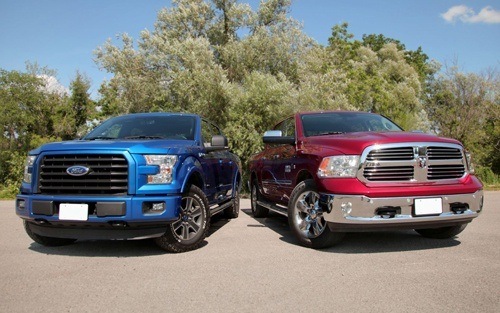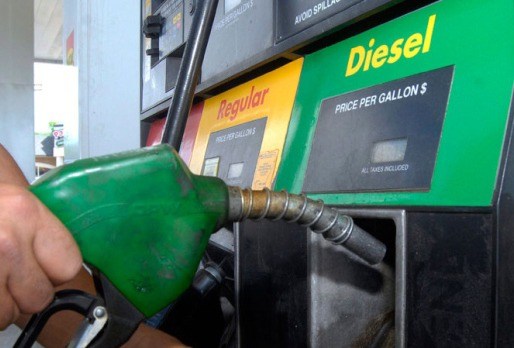When researching a new company work van, an important consideration is whether you want a gas engine vehicle vs. a diesel. There are pros and cons to both gas and diesel vans. Diesel vans are often more expensive up front, but hold their value in the long run. Gas vans offer the benefit of generally being less noisy than their diesel counterparts. It’s important to consider cost, fuel economy and power when deciding between a diesel or gas van for your company.
Comparing Cost

When comparing the cost of a gas vehicle to its diesel counterpart, the gas version is going to be less expensive up front in 2017. If your company is looking to save money on the initial vehicle cost, that is something to consider. According to Forbes.com, on average a diesel is $5,045 more than a gas-powered version of the same model. However, per a University of Michigan study, the average total cost of ownership (TCO) was between $2,000- $5,000 less for diesel owners over a 5-year period. Whether or not the higher cost of the diesel vehicle will pay for itself over time is dependent on how many miles per year it’s driven. “Diesel engines last longer. That’s certainly true for over-the-road semi tractors that typically travel 80,000 to 100,000 miles per year. These vehicles are typically expected to operate for half a million miles or more before trade-in or sale.” (www.government-fleet.com)
In addition to a vehicle’s purchase price, it’s important to consider vehicle maintenance costs as well. Diesels typically offer longer warranties and additional maintenance coverage than gas vehicles. However, diesel parts can be more expensive and harder to find in certain geographic areas than parts for a gas vehicle.
Considering Fuel Economy

The margin between the cost of gas and diesel has become smaller and smaller over the past couple years. In the past, diesel was significantly less expensive than gas. According to Truck Trend, “the growing emergence of direct-injected and turbocharged gasoline engines have made the fuel economy difference between gas and diesel engines much smaller than before. Diesels take around “150,000 miles before the fuel cost benefit makes up for the initial price premium. Diesel trucks make sense if you plan to tow a lot, put a lot of miles on your truck, or keep it for many years.” (www.tfltruck.com) Although diesel prices have come down a lot, and will continue to do so, generally gas is cheaper than diesel when filling your tank.
One thing to consider is the availability of diesel in your area. “One reason people avoid diesel-powered vehicles is the lack of fuel availability. Only about 2 percent of this country’s vehicles are diesel powered, so fewer places sell diesel fuel.” (www.entrepreneur.com)
Comparing Power
Purchasing a vehicle that has enough power to get the job done is an important consideration. Generally, diesel and gas vehicles have very similar ratings in terms of horsepower. What truly makes a difference is the amount of torque. Is your work van going to need to haul a lot of bulk material? Will it be consistently pulling a trailer? If so, you will want to opt for a diesel vehicle for your hauling and towing needs. “…If you frequently tow trailers or haul loads, consider a diesel. Because of its high-compression operation, a diesel makes its torque and power at low speeds, making it perfect for pulling heavy loads up steep grades.” (www.entrepreneur.com)
Additional questions to consider are:
• How far will you be commuting every day? Consider the savings in gas here.
• Are you looking for better mpg or more torque?
• Are you relying on your vehicle to haul the maximum available payload?
For additional resources:
Explore these Magnum Manufacturing articles post below:
• Gas vs. Diesel Truck Comparison
• Cost of Ownership: Gas vs. Diesel